
TORAH
NEVI'IM
KETUVIM
Chapter 19
Translation and Transliteration of
Listen to this chapter in Hebrew:
- Commentary
- Buy E-book
- Buy the Israel Bible
1Hashem spoke to Moshe, saying:
אוַיְדַבֵּר יְהֹוָה אֶל־מֹשֶׁה לֵּאמֹר:
2Speak to the whole Israelite community and say to them: You shall be holy, for I, Hashem your God, am holy.
בדַּבֵּר אֶל־כָּל־עֲדַת בְּנֵי־יִשְׂרָאֵל וְאָמַרְתָּ אֲלֵהֶם קְדֹשִׁים תִּהְיוּ כִּי קָדוֹשׁ אֲנִי יְהֹוָה אֱלֹהֵיכֶם׃
3You shall each revere his mother and his father, and keep My Shabbatot: I Hashem am your God.
גאִישׁ אִמּוֹ וְאָבִיו תִּירָאוּ וְאֶת־שַׁבְּתֹתַי תִּשְׁמֹרוּ אֲנִי יְהֹוָה אֱלֹהֵיכֶם׃
4Do not turn to idols or make molten gods for yourselves: I Hashem am your God.
דאַל־תִּפְנוּ אֶל־הָאֱלִילִים וֵאלֹהֵי מַסֵּכָה לֹא תַעֲשׂוּ לָכֶם אֲנִי יְהֹוָה אֱלֹהֵיכֶם׃
5When you sacrifice an offering of well-being to Hashem, sacrifice it so that it may be accepted on your behalf.
הוְכִי תִזְבְּחוּ זֶבַח שְׁלָמִים לַיהֹוָה לִרְצֹנְכֶם תִּזְבָּחֻהוּ׃
6It shall be eaten on the day you sacrifice it, or on the day following; but what is left by the third day must be consumed in fire.
ובְּיוֹם זִבְחֲכֶם יֵאָכֵל וּמִמָּחֳרָת וְהַנּוֹתָר עַד־יוֹם הַשְּׁלִישִׁי בָּאֵשׁ יִשָּׂרֵף׃
7If it should be eaten on the third day, it is an offensive thing, it will not be acceptable.
זוְאִם הֵאָכֹל יֵאָכֵל בַּיּוֹם הַשְּׁלִישִׁי פִּגּוּל הוּא לֹא יֵרָצֶה׃
8And he who eats of it shall bear his guilt, for he has profaned what is sacred to Hashem; that person shall be cut off from his kin.
חוְאֹכְלָיו עֲוׂנוֹ יִשָּׂא כִּי־אֶת־קֹדֶשׁ יְהֹוָה חִלֵּל וְנִכְרְתָה הַנֶּפֶשׁ הַהִוא מֵעַמֶּיהָ׃
9When you reap the harvest of your land, you shall not reap all the way to the edges of your field, or gather the gleanings of your harvest.
uv-kutz-r'-KHEM et k'-TZEER ar-tz'-KHEM LO t'-kha-LE p'-AT sa-d'-KHA lik-TZOR v'-LE-ket k'-tzee-r'-KHA LO t'-la-KAYT
טוּבְקֻצְרְכֶם אֶת־קְצִיר אַרְצְכֶם לֹא תְכַלֶּה פְּאַת שָׂדְךָ לִקְצֹר וְלֶקֶט קְצִירְךָ לֹא תְלַקֵּט׃
10You shall not pick your vineyard bare, or gather the fallen fruit of your vineyard; you shall leave them for the poor and the stranger: I Hashem am your God.
יוְכַרְמְךָ לֹא תְעוֹלֵל וּפֶרֶט כַּרְמְךָ לֹא תְלַקֵּט לֶעָנִי וְלַגֵּר תַּעֲזֹב אֹתָם אֲנִי יְהֹוָה אֱלֹהֵיכֶם׃
11You shall not steal; you shall not deal deceitfully or falsely with one another.
יאלֹא תִּגְנֹבוּ וְלֹא־תְכַחֲשׁוּ וְלֹא־תְשַׁקְּרוּ אִישׁ בַּעֲמִיתוֹ׃
12You shall not swear falsely by My name, profaning the name of your God: I am Hashem.
יבוְלֹא־תִשָּׁבְעוּ בִשְׁמִי לַשָּׁקֶר וְחִלַּלְתָּ אֶת־שֵׁם אֱלֹהֶיךָ אֲנִי יְהֹוָה׃
13You shall not defraud your fellow. You shall not commit robbery. The wages of a laborer shall not remain with you until morning.
יגלֹא־תַעֲשֹׁק אֶת־רֵעֲךָ וְלֹא תִגְזֹל לֹא־תָלִין פְּעֻלַּת שָׂכִיר אִתְּךָ עַד־בֹּקֶר׃
14You shall not insult the deaf, or place a stumbling block before the blind. You shall fear your God: I am Hashem.
ידלֹא־תְקַלֵּל חֵרֵשׁ וְלִפְנֵי עִוֵּר לֹא תִתֵּן מִכְשֹׁל וְיָרֵאתָ מֵּאֱלֹהֶיךָ אֲנִי יְהֹוָה׃
15You shall not render an unfair decision: do not favor the poor or show deference to the rich; judge your kinsman fairly.
טולֹא־תַעֲשׂוּ עָוֶל בַּמִּשְׁפָּט לֹא־תִשָּׂא פְנֵי־דָל וְלֹא תֶהְדַּר פְּנֵי גָדוֹל בְּצֶדֶק תִּשְׁפֹּט עֲמִיתֶךָ׃
16Do not deal basely with your countrymen. Do not profit by the blood of your fellow: I am Hashem.
טזלֹא־תֵלֵךְ רָכִיל בְּעַמֶּיךָ לֹא תַעֲמֹד עַל־דַּם רֵעֶךָ אֲנִי יְהֹוָה׃
17You shall not hate your kinsfolk in your heart. Reprove your kinsman but incur no guilt because of him.
יזלֹא־תִשְׂנָא אֶת־אָחִיךָ בִּלְבָבֶךָ הוֹכֵחַ תּוֹכִיחַ אֶת־עֲמִיתֶךָ וְלֹא־תִשָּׂא עָלָיו חֵטְא׃
18You shall not take vengeance or bear a grudge against your countrymen. Love your fellow as yourself: I am Hashem.
lo ti-KOM v'-lo ti-TOR et b'-NAY a-ME-kha v'-a-hav-TA l'-ray-a-KHA ka-MO-kha a-NEE a-do-NAI
יחלֹא־תִקֹּם וְלֹא־תִטֹּר אֶת־בְּנֵי עַמֶּךָ וְאָהַבְתָּ לְרֵעֲךָ כָּמוֹךָ אֲנִי יְהֹוָה׃
![]() 19:18 Love your fellow as yourself
19:18 Love your fellow as yourself
In a speech given in 1944 to a gathering of youth groups in Haifa, Prime Minister David Ben Gurion referred to these words as an example of how Judaism serves as a paradigm of a society built on morality, peace and love: “Ours was a tiny nation inhabiting a small country, and there have been many tiny nations and many small countries, but ours was a tiny nation possessed of a great spirit; an inspired people that believed in its pioneering mission to all men, in the mission that had been preached by the prophets of Israel. This people gave the world great and eternal moral truths and commandments. This people rose to prophetic visions of the unity of the Creator with His creation, of the dignity and infinite worth of the individual because every man is created in the divine image, of social justice, universal peace, and love: ‘Thou shalt love thy neighbor as thyself.’ This people was the first to prophesy about ‘the end of days,’ the first to see the vision of a new human society.” Even though Ben Gurion was not a religious Jew, he was deeply influenced by the Bible, which had a profound impact on his outlook and his actions on behalf of the Jewish State.
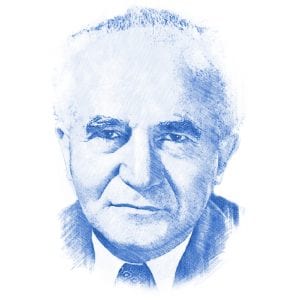
Prime Minister David Ben Gurion (1886-1973)

Prime Minister David Ben-Gurion, 1962
19You shall observe My laws. You shall not let your cattle mate with a different kind; you shall not sow your field with two kinds of seed; you shall not put on cloth from a mixture of two kinds of material.
יטאֶת־חֻקֹּתַי תִּשְׁמֹרוּ בְּהֶמְתְּךָ לֹא־תַרְבִּיעַ כִּלְאַיִם שָׂדְךָ לֹא־תִזְרַע כִּלְאָיִם וּבֶגֶד כִּלְאַיִם שַׁעַטְנֵז לֹא יַעֲלֶה עָלֶיךָ׃
20If a man has carnal relations with a woman who is a slave and has been designated for another man, but has not been redeemed or given her freedom, there shall be an indemnity; they shall not, however, be put to death, since she has not been freed.
כוְאִישׁ כִּי־יִשְׁכַּב אֶת־אִשָּׁה שִׁכְבַת־זֶרַע וְהִוא שִׁפְחָה נֶחֱרֶפֶת לְאִישׁ וְהָפְדֵּה לֹא נִפְדָּתָה אוֹ חֻפְשָׁה לֹא נִתַּן־לָהּ בִּקֹּרֶת תִּהְיֶה לֹא יוּמְתוּ כִּי־לֹא חֻפָּשָׁה׃
21But he must bring to the entrance of the Tent of Meeting, as his guilt offering to Hashem, a ram of guilt offering.
כאוְהֵבִיא אֶת־אֲשָׁמוֹ לַיהֹוָה אֶל־פֶּתַח אֹהֶל מוֹעֵד אֵיל אָשָׁם׃
22With the ram of guilt offering the Kohen shall make expiation for him before Hashem for the sin that he committed; and the sin that he committed will be forgiven him.
כבוְכִפֶּר עָלָיו הַכֹּהֵן בְּאֵיל הָאָשָׁם לִפְנֵי יְהֹוָה עַל־חַטָּאתוֹ אֲשֶׁר חָטָא וְנִסְלַח לוֹ מֵחַטָּאתוֹ אֲשֶׁר חָטָא׃
23When you enter the land and plant any tree for food, you shall regard its fruit as forbidden. Three years it shall be forbidden for you, not to be eaten.
v'-khee ta-VO-u el ha-A-retz u-n'-ta-TEM kol AYTZ ma-a-KHAL va-a-ral-TEM or-la-TO et pir-YO sha-LOSH sha-NEEM yih-YEH la-KHEM a-ray-LEEM LO yay-a-KHAYL
כגוְכִי־תָבֹאוּ אֶל־הָאָרֶץ וּנְטַעְתֶּם כָּל־עֵץ מַאֲכָל וַעֲרַלְתֶּם עָרְלָתוֹ אֶת־פִּרְיוֹ שָׁלֹשׁ שָׁנִים יִהְיֶה לָכֶם עֲרֵלִים לֹא יֵאָכֵל׃
24In the fourth year all its fruit shall be set aside for jubilation before Hashem;
כדוּבַשָּׁנָה הָרְבִיעִת יִהְיֶה כָּל־פִּרְיוֹ קֹדֶשׁ הִלּוּלִים לַיהֹוָה׃
25and only in the fifth year may you use its fruit—that its yield to you may be increased: I Hashem am your God.
כהוּבַשָּׁנָה הַחֲמִישִׁת תֹּאכְלוּ אֶת־פִּרְיוֹ לְהוֹסִיף לָכֶם תְּבוּאָתוֹ אֲנִי יְהֹוָה אֱלֹהֵיכֶם׃
26You shall not eat anything with its blood. You shall not practice divination or soothsaying.
כולֹא תֹאכְלוּ עַל־הַדָּם לֹא תְנַחֲשׁוּ וְלֹא תְעוֹנֵנוּ׃
27You shall not round off the side-growth on your head, or destroy the side-growth of your beard.
כזלֹא תַקִּפוּ פְּאַת רֹאשְׁכֶם וְלֹא תַשְׁחִית אֵת פְּאַת זְקָנֶךָ׃
28You shall not make gashes in your flesh for the dead, or incise any marks on yourselves: I am Hashem.
כחוְשֶׂרֶט לָנֶפֶשׁ לֹא תִתְּנוּ בִּבְשַׂרְכֶם וּכְתֹבֶת קַעֲקַע לֹא תִתְּנוּ בָּכֶם אֲנִי יְהֹוָה׃
29Do not degrade your daughter and make her a harlot, lest the land fall into harlotry and the land be filled with depravity.
כטאַל־תְּחַלֵּל אֶת־בִּתְּךָ לְהַזְנוֹתָהּ וְלֹא־תִזְנֶה הָאָרֶץ וּמָלְאָה הָאָרֶץ זִמָּה׃
30You shall keep My Shabbatot and venerate My sanctuary: I am Hashem.
לאֶת־שַׁבְּתֹתַי תִּשְׁמֹרוּ וּמִקְדָּשִׁי תִּירָאוּ אֲנִי יְהֹוָה׃
31Do not turn to ghosts and do not inquire of familiar spirits, to be defiled by them: I Hashem am your God.
לאאַל־תִּפְנוּ אֶל־הָאֹבֹת וְאֶל־הַיִּדְּעֹנִים אַל־תְּבַקְשׁוּ לְטָמְאָה בָהֶם אֲנִי יְהֹוָה אֱלֹהֵיכֶם׃
32You shall rise before the aged and show deference to the old; you shall fear your God: I am Hashem.
לבמִפְּנֵי שֵׂיבָה תָּקוּם וְהָדַרְתָּ פְּנֵי זָקֵן וְיָרֵאתָ מֵּאֱלֹהֶיךָ אֲנִי יְהֹוָה׃
33When a stranger resides with you in your land, you shall not wrong him.
לגוְכִי־יָגוּר אִתְּךָ גֵּר בְּאַרְצְכֶם לֹא תוֹנוּ אֹתוֹ׃
34The stranger who resides with you shall be to you as one of your citizens; you shall love him as yourself, for you were strangers in the land of Egypt: I Hashem am your God.
לדכְּאֶזְרָח מִכֶּם יִהְיֶה לָכֶם הַגֵּר הַגָּר אִתְּכֶם וְאָהַבְתָּ לוֹ כָּמוֹךָ כִּי־גֵרִים הֱיִיתֶם בְּאֶרֶץ מִצְרָיִם אֲנִי יְהֹוָה אֱלֹהֵיכֶם׃
35You shall not falsify measures of length, weight, or capacity.
להלֹא־תַעֲשׂוּ עָוֶל בַּמִּשְׁפָּט בַּמִּדָּה בַּמִּשְׁקָל וּבַמְּשׂוּרָה׃
36You shall have an honest balance, honest weights, an honest efah, and an honest hin. I Hashem am your God who freed you from the land of Egypt.
לומֹאזְנֵי צֶדֶק אַבְנֵי־צֶדֶק אֵיפַת צֶדֶק וְהִין צֶדֶק יִהְיֶה לָכֶם אֲנִי יְהֹוָה אֱלֹהֵיכֶם אֲשֶׁר־הוֹצֵאתִי אֶתְכֶם מֵאֶרֶץ מִצְרָיִם׃
37You shall faithfully observe all My laws and all My rules: I am Hashem.
לזוּשְׁמַרְתֶּם אֶת־כָּל־חֻקֹּתַי וְאֶת־כָּל־מִשְׁפָּטַי וַעֲשִׂיתֶם אֹתָם אֲנִי יְהֹוָה׃

![Our portion teaches that social responsibility leads to holiness. [Image: Shutterstock]](https://tibretired.kinsta.cloud/wp-content/uploads/2023/05/child-grandfather-holding-hands.jpg)
The Portion of Kedoshim (Leviticus 19:1-20:27)

Respectful Disobedience
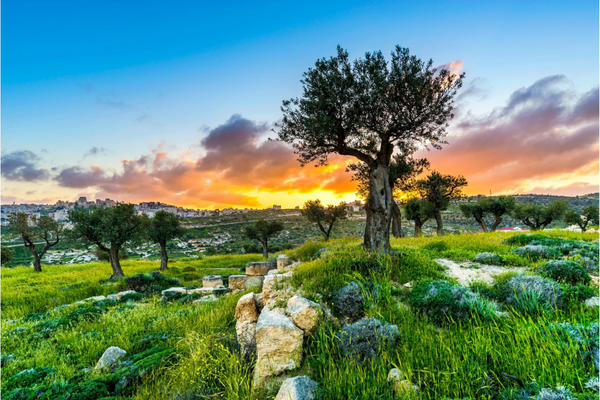
Five Things Man Can Learn From a Tree

The Difference Between Politicians and Leaders
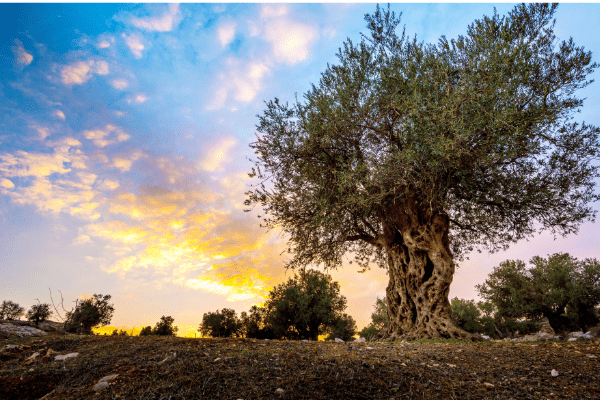
Put the Brakes on the Messiah: There are Trees to Plant

Lag BaOmer: Sparks of Joy Lighting Up the Darkness
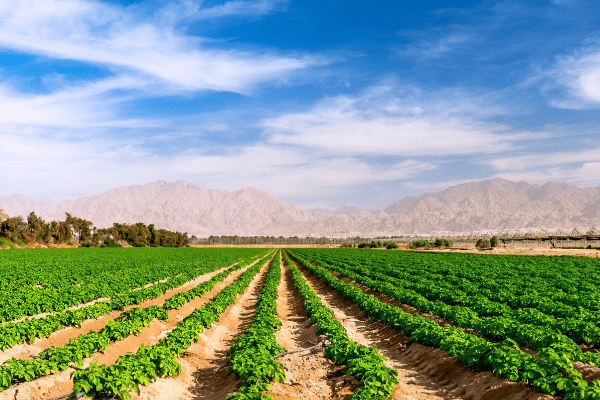
Kil'ayim: Why Does the Torah Forbid Mixtures of Animal Breeds, Plants and Cloth?
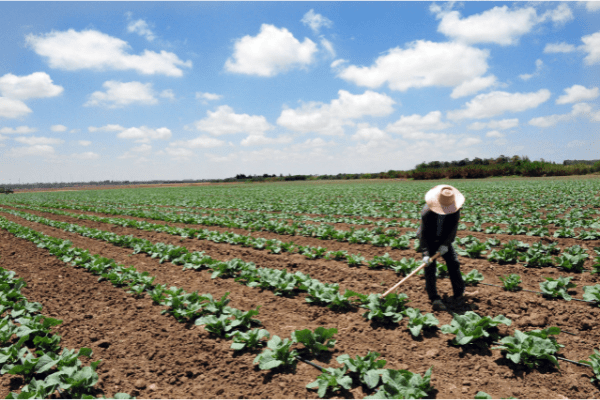
The Obligation to Pay Wages On Time
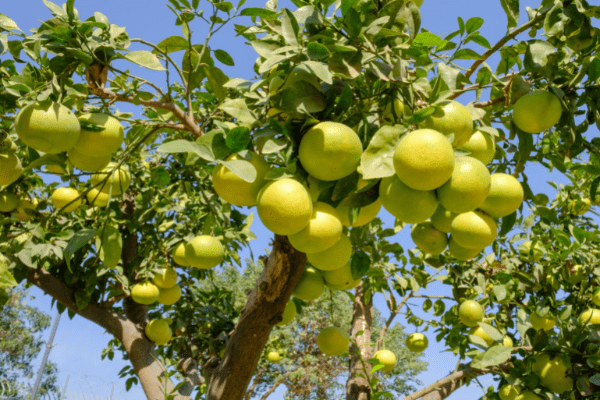
Orlah: The Prohibition Against Eating Fruit Produced by a Tree During the First Three Years After Planting





